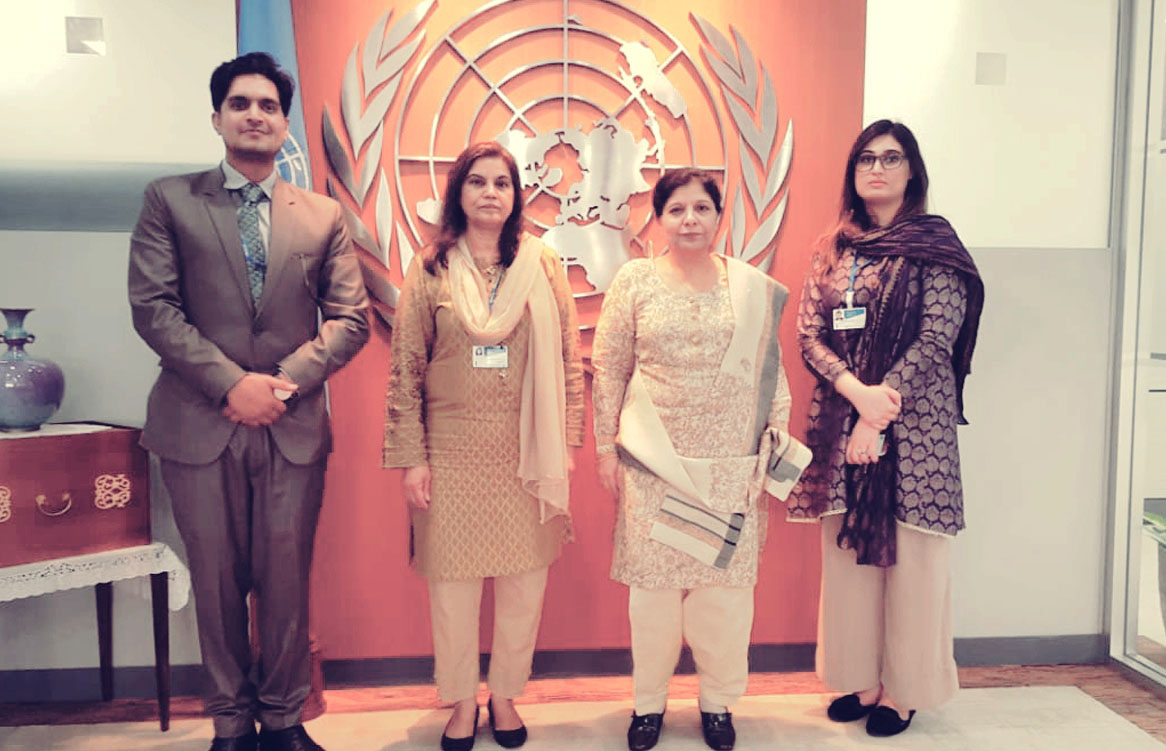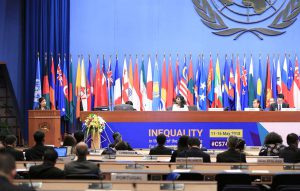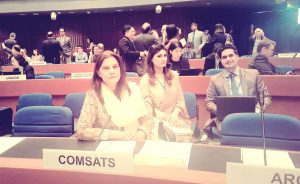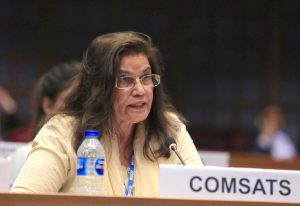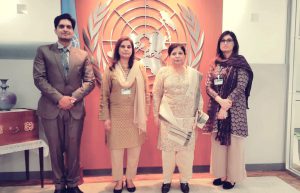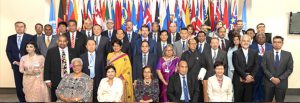A COMSATS delegation led by Ambassador Fauzia Nasreen, Advisor (SDGs) visited Bangkok from 10 to 16 May 2018 to attend the 74th Session of UNESCAP. COMSATS participation in the event was a sequel to an MoU signed between the two Commissions during the visit of Dr. Shamshad Akhtar, UN Under Secretary General and Executive Secretary in December 20017.
The theme of this year’s UNESCAP was “Inequality in the Era of the 2030 A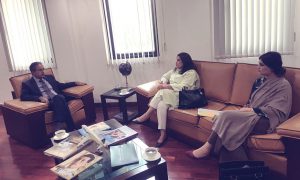 genda for Sustainable Development”. The session was divided into two segments: Senior Officials and the High- Level Ministerial. Preceding the deliberations in the two segments, in the opening session the Executive Secretary provided a comprehensive picture of the issues confronted the Asia-Pacific region, initiatives taken to address the challenges and the progress achieved. In terms of inequality it was mentioned that it has increased within and between countries notwithstanding the impressive economic progress achieved by some of the Asia-Pacific countries.
genda for Sustainable Development”. The session was divided into two segments: Senior Officials and the High- Level Ministerial. Preceding the deliberations in the two segments, in the opening session the Executive Secretary provided a comprehensive picture of the issues confronted the Asia-Pacific region, initiatives taken to address the challenges and the progress achieved. In terms of inequality it was mentioned that it has increased within and between countries notwithstanding the impressive economic progress achieved by some of the Asia-Pacific countries.
At the working sessions member countries reported in their statements the status with regard to 2030 agenda for sustainable development. The mega connectivity measures such as Belt and Road initiative and other infrastructure projects as well as ICT connectivity were seen as potential game changers within Asia Pacific. In the context of inequality the Pakistan delegate drew attention to the necessity of provision and transfer of assistive technologies to provide opportunity and access to Persons with Disabilities. It was very well received by the representatives presenting the sub-regional group reports. This would be incorporated in their activities.
In the ministerial segment on 14 and 15 May, country statements were delivered by the representatives of member countries and international and non-governmental organizations enjoying observer status with UNESCAP. COMSATS had a dedicated place from where a statement of COMSATS was made. It highlighted the vision of COMSATS founders with reference to the three pillars: science and technology; sustainable development and south-south cooperation. COMSATS aim of providing better life to people at large was in sync with the objective of reducing inequality and therefore, receives topmost priority in its functioning.
The ministerial segment also dwelt with the frontier technologies and its impact within the framework of inequality debate. A statement was delivered by the Pakistan delegate as representative of an institute devoted to science and technology. The statement mentioned about three areas of concern:
- Electronic and industrial waste being generated because of frontier technologies and the need to accord due priority to waste management and recycling. This was needed to avert environment related risks and threats;
- Imperative of re-orienting vocational training, skill development and other connected measures to obviate the impact of shifts in labour as well as migrant workers-changing skill needs as a result of adoption of frontier technologies;
- The issue of Openness especially in so far as frontier technologies are concerned. This was with reference to restrictions imposed on access to open sources.
The opportunity afforded by the presence of COMSATS delegation at ESCAP Headquarters was utilized in holding meetings with the senior officials of COMSATS. The call on the Executive Secretary was the highlight where matters related to future prospects of collaboration between COMSATS and ESCAP were discussed. The Executive Secretary extended a message of good will for the Executive Director, COMSATS. With the other senior officials subjects related to potential areas of joint activities such as High-Level Political Forum related to BAPA-40, cooperation of strategic nature involving exposure to small scale technologies with ESCAP member countries, disaster risk reduction and social issues such as Persons with Disabilities. The focus remained on the Sustainable Development Goals (SDGs), south-south and triangular cooperation.
On the whole the visit was successful in generating interests in COMSATS. It afforded a useful opportunity for networking and projection of the scope, policies and framework of activities.

